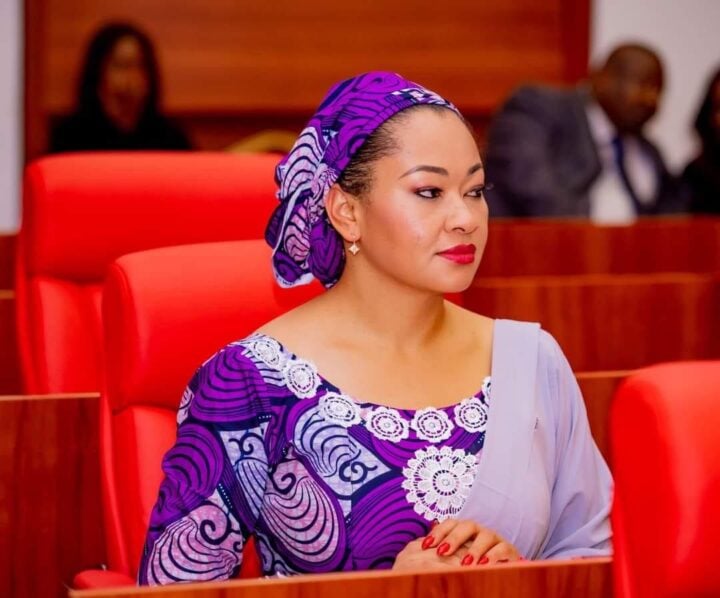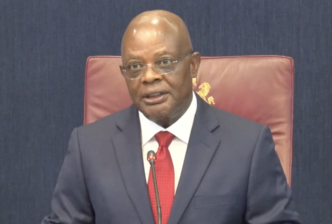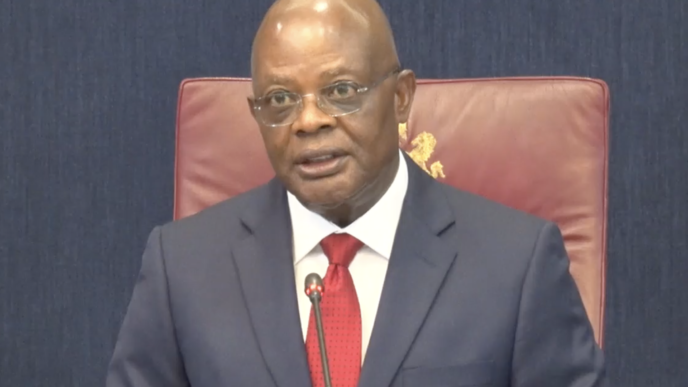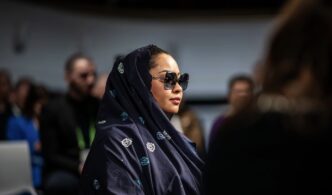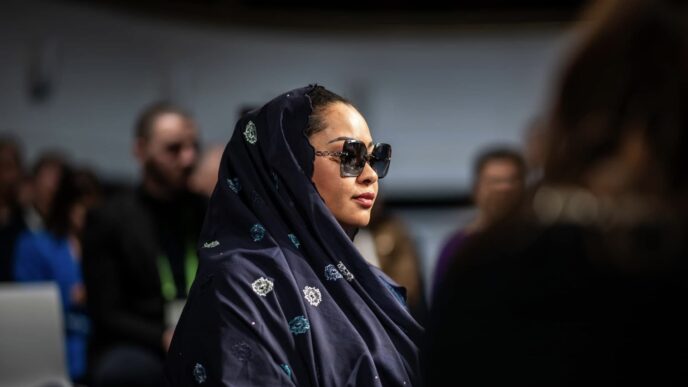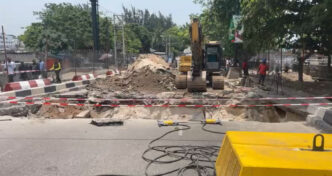Natasha Akpoti-Uduaghan
Rotimi Oyekanmi, the chief press secretary (CPS) to the chairman of the Independent National Electoral Commission (INEC), says the constitution does not limit the number of times a lawmaker can be recalled.
Oyekanmi spoke on Thursday during his appearance on ‘Politics Today,’ a programme on Channels Television.
Responding to whether the recall process could be repeated, he said the law does not specify if or how many times it can be conducted.
“I don’t think the law talked about whether there could be a repeat or not; the law just talks about the threshold, the threshold meaning that if you want to recall, you must have, in addition to your petition, 50 percent plus one signature,” he said.
Advertisement
“The law did not specify how many times you can undertake that; if you check section 69 of the constitution, it did not limit the number of times you can recall a lawmaker or a representative.”
Earlier today, the commission said the recall petition against Natasha Akpoti-Uduaghan, the lawmaker representing Kogi central, failed to meet the requirements of the 1999 Constitution.
The electoral umpire said the number of constituents who signed the petition against the suspended lawmaker fell short of 50 percent of registered voters in her senatorial district, as required by the constitution.
Advertisement
Making clarifications, Oyekanmi said INEC was not partisan in its handling of the failed recall petition against Akpoti-Uduaghan.
“In the case of the Kogi central district, we received a petition and a cover letter, and of course what Nigerians were saying was that we were taking sides,” he said.
“But what happened was that in the covering letter, the representatives of the petitioners did not include their address as required in our regulations and guidelines, and what we just did was to ask them to supply their address; it has nothing to do with the petition.
“And of course, there is nowhere in the law where INEC is asked to reject a petition just because the cover letter did not contain the address. So, there was no hanky-panky in what we did.”
Advertisement
Akpoti-Uduaghan had described the development as a victory and dedicated it to Nigerians.
BACKGROUND
On March 24, some members of Kogi central district submitted a petition to INEC requesting the recall of Akpoti-Uduaghan from the senate.
Charity Omole, a representative of the constituents, said they submitted the petition to recall the senator because Kogi central cannot afford not to have a representative in the senate following her suspension.
Advertisement
“We have come to recall her so that we can have a representative in the senate. We are here to tell INEC to please follow the constitutional process for a recall so that a recall process can begin,” Omole had said.
“We submitted the petition, and it has been received. All other documents have been received.
Advertisement
“We are the ones that voted her, and we don’t want her anymore because we cannot afford not to have a representative. Nobody is bankrolling us. Nobody is having any personal issue with her. It is just what it is. The game is the game.”
She said there are 488,000 registered voters in Kogi central, out of which more than 250,000 have signed the recall petition.
Advertisement
However, INEC said the petitioners did not provide their contact details.
On March 26, INEC said it had notified Akpoti-Uduaghan about the petition by constituents seeking her recall from the national assembly.
Advertisement
The commission said it had also received the contact details of the petitioners.
Speaking at her homecoming rally in Kogi on Tuesday, Akpoti-Uduaghan accused the electoral body of bias in her recall process.
“What I see INEC doing is aiding and guiding petitioners on how to perfect their illicit acts,” she said.
“The first time the petition was submitted, they didn’t have address and phone numbers, so INEC went out to guide them on how to submit information that will perfect their petition.
“And what did they do? The petitioners, who were from the other party, the APC, submitted a letterhead. What was the name of it? Kogi Central Political Frontier. And the address there was number 4, Oboroke.”
